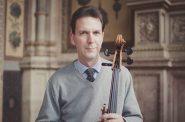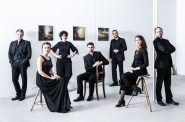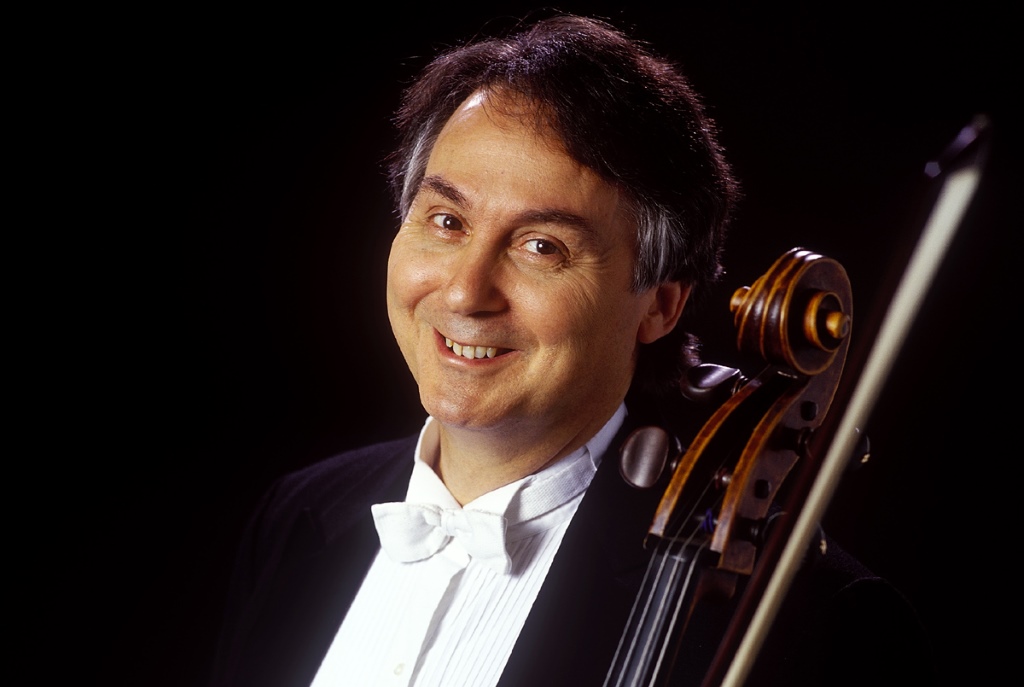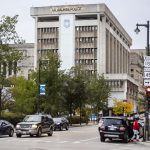The Glorious Sound of the Cello
Fine Arts Quartet and guest take on three works with powerful cello music.
The Fine Arts Quartet returns to the Helene Zelazo Center at UWM for the second of their concerts in the Summer Evenings of Music this Sunday, June 11 at 7:30 p.m. Violinists Ralph Evans and Efim Boico, violist Juan-Miguel Hernandez, and cellist Robert Cohen will be joined by guest artist Ralph Kirshbaum, cello. Kirshbaum currently holds the Gregor Piatigorsky Endowed Chair in Violoncello at the University of Southern California‘s Thornton School of Music in Los Angeles. He is the founder of the Manchester International Cello Festival, a triennial concert series sponsored by the Royal Northern College of Music.
The concert opens with the Duet No. 1, Op. 53 for two cellos by Reinhold Glière. Known as “The Father of Soviet Composers,” Glière will be familiar to contemporary classical audiences for his rousingly popular “Russian Sailor’s Dance” (1927). That Glière was named an Artist of the People in Soviet Union tells us something about the nature of his music as well as his politics. He was interested in national folk styles, and spent much of his time collecting folk songs in the far reaches of the USSR. The duet on this program is the first of ten duos for two cellos, composed in 1911. It is a dark and mournful miniature, which American Record Guide called “richly resonant and demanding technically.”
The evening concludes with the popular Schubert String Quintet in C Major, D956. Although Schubert composed fifteen string quartets, he is known to have composed only one complete string quintet. An early biographer noted that the composer was “an original thinker in the field of instrumental discoveries” and described the quintet as “a perfect gem in music.” Schubert died two months after composing the piece, on November 19, 1828.
Aside from the identical instrumentation of their quintets, there are perhaps shared experiences that link Schubert and Glazunov. In early 1828, Schubert organized a special concert in Vienna, marking the anniversary of Beethoven’s death. One hundred years later, in 1928, Glazunov traveled to Vienna for the Schubert centenary celebrations. That trip marked his decision to remain in Western Europe rather than return to Stalinist Russia. He lived out his days in Paris. By contrast, in the Soviet Union in 1928, Glière had just completed his celebrated nationalist ballet The Red Poppy.
Although the three composers whose works appear on this program are separated by time, nationality, and political sentiment, they share an interest in the deep sonorities of the cello. Each piece brings out the rich resonances of the instrument.
Concerts in the Summer Evenings of Music series take place June 11, June 18, and June 25 at the Helene Zelazo Center for the Performing Arts, 2419 E. Kenwood Blvd. Concert time is 7:30 p.m, preceded by a talk at 6:30 p.m. The admission for the summer concerts is free, although it is advisable to book tickets in advance through the box office. Details of the concerts are posted on the Peck School website. Tickets may be reserved on-line or by calling 414-229-4308. Parking is available in the Zelazo Center lot, to the south of the building, and in the Union parking garage across Kenwood Boulevard. Parking is free on Sundays.
Preview
-
Concert Blends European and Persian Music
 Apr 1st, 2024 by Michael Barndt
Apr 1st, 2024 by Michael Barndt
-
Tamás Varga Guest Stars With Frankly Music
 Mar 11th, 2024 by Michael Barndt
Mar 11th, 2024 by Michael Barndt
-
Swiss Early Music Ensemble Will Play The Music of Da Vinci
 Feb 21st, 2024 by Martha Brown
Feb 21st, 2024 by Martha Brown

















